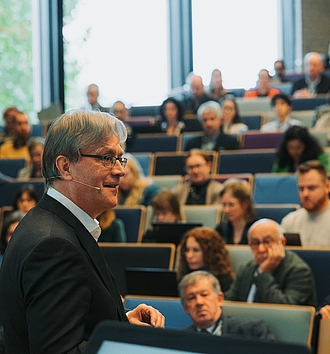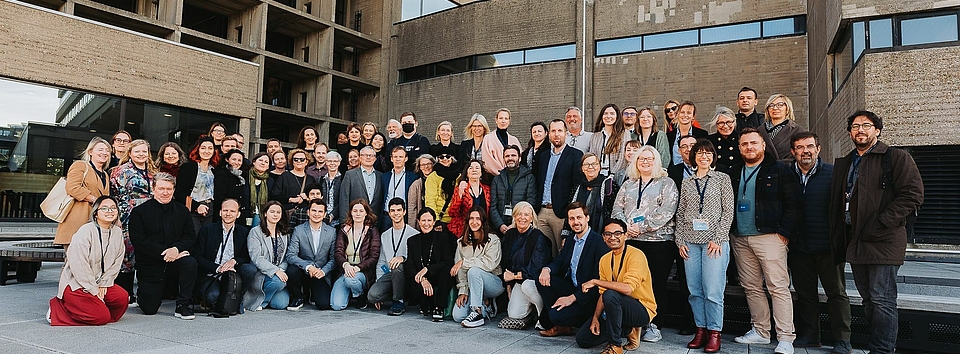The conference schedule was very intense: lectures, plenary and parallel sessions, workshops, city tours – all these activities focused on unifying the UNIC vision, which will be implemented in the next phase of the alliance. The urgent need to create innovative organisational structures and strengthen lasting cooperation between the universities across Europe was highlighted in the speeches.
What else did we discuss?
The key plenary session, chaired by Prof. Ed Brinksma, President of Erasmus University Rotterdam’s Executive Board, opened the field for discussion on how to create institutional catalysts for change and how to extend the idea of a European University.
Dr Michael Murphy, President of the European University Association, reminded the participants that the objective of UNIC is to create a set of programmes dedicated to understanding the transformations that post-industrial cities across Europe are undergoing
Europe will only be as strong as its universities
said Dr Murphy.
The conference was attended by researchers, administrative staff, students and city stakeholders, which created new space for considering ideas that are not usually found side by side.
The pioneering work as part of UNIC's Pan-European initiatives such as Superdiversity Academy and City Labs was presented. There was also time to share best practices. A large group of alliance stakeholders had the opportunity to contribute their own ideas to building new plans for the second phase of the UNIC project: issues such as urban resilience, (super)diversity, social inclusion, health and well-being as well as purpose-driven entrepreneurship were addressed.
Cooperation, student involvement, structural reforms and common tools developed in order to strengthen the European Higher Education Area (EHEA) were emphasised. The subject of inclusive education and the engagement of research and services with the real needs of society also emerged.
The future of European universities is very bright
concluded Dr Daria Ratsiborinskaya, Senior Policy Officer for Internationalisation at Erasmus University Rotterdam (EUR).
At the moment the UNIC Alliance brings together more than 200 000 students and nearly 30 000 employees from 10 European countries moving even closer to the European Commission's call for a network of universities across Europe, committed to teaching and research, as well as integrating whole communities.



